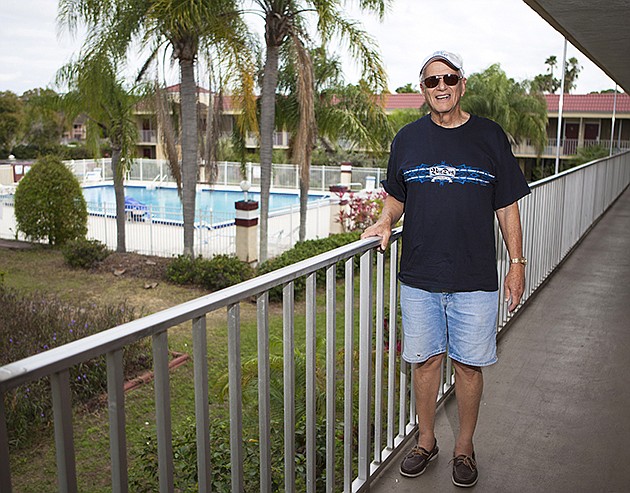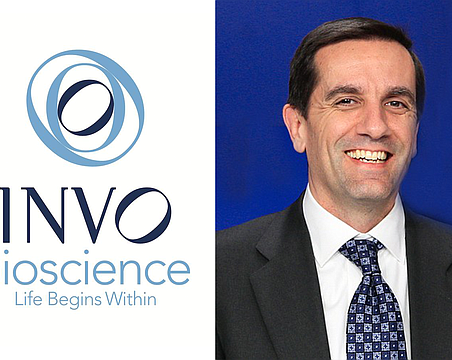Executive Summary
Entrepreneur. Harvey Vengroff Industry. Multifamily real estate Key. Vengroff is in rare space, converting rundown motel rooms into studio apartments.
Successful debt collection industry executive Harvey Vengroff wasn't sure how bad things really were when he bought an apartment complex in a gritty Sarasota neighborhood in 2000.
One telltale sign: Paramedics who arrived for emergency calls at the complex, on Old Bradenton Road, weren't allowed to exit their ambulance until two police cars arrived. One set of officers escorted the EMTs into the apartment. The other officers guarded the ambulance from would-be thieves who sought to steal medicines and supplies.
Vengroff says he used a combination of his “own guys” and law enforcement to fix up the complex. “Now it's clean and safe,” says Vengroff. “It's just like any other neighborhood.”
It's also one of multiple apartment buildings Vengroff owns in the Sarasota-Manatee area that offer mostly one- and two-bedroom units for the professional working crowd. Vengroff owns more than 1,400 apartments, part of a small empire of residential and commercial properties.
Now, at 74, Vengroff has added a new dynamic to this already colorful portfolio: He converts old motels into workforce and transitional housing for homeless people. He currently has about 300 studio apartments under this conversion model, and seeks to add hundreds more. He doesn't participate in federal, state or local government housing affordability programs.
While the move sounds more like charity than real estate, and it's certainly life-changing for many tenants, Vengroff says this is, above all else, a shrewd business move. He says he makes a profit of at least 40% on each unit he leases for $575 a month. A waiting list of 200 prospective tenants validates the demand.
Vengroff realizes most commercial real estate developers stick to high-end projects. But to Vengroff that merely means greater opportunity with his own model. “There is more money in low-end,” Vengroff says. “But nobody wants to be there.”
Vengroff wants to be there so much he's part of a team putting together a $100 million capital raise effort to expand the model. Area commercial real estate broker Stan Rutstein, who helps Vengroff scout and buy properties, says one avenue to raise the funds could be through a private real estate investment trust. Another could be through a more traditional investment fund.
The Vengroff-led team, in an investor prospectus, says it has five motels totaling 350 apartments ready for purchase and conversion. Although Rutstein declines to name specific sites, motels that fit this model, in general, are about 25-40 years old. The properties tend to need renovations and have outdoor entrances to rooms — a big turnoff to major hotel brands in a potential sale. Rutstein says the team is focused on Florida, for now, but would like to expand out of the state eventually.
Rutstein says the deals help a variety of sides: For starters, people in dire need of shelter get a place to live. Property owners get to cash out. Municipalities get people back on the tax rolls and off the streets. And Vengroff and his partners get a tidy profit. “We are definitely interested in finding more properties,” says Rutstein. “The intent is to take this past (Manatee and Sarasota) counties.”
'A good deal'
Vengroff currently operates three former motels on U.S. 41 between downtown Sarasota and downtown Bradenton under the conversion model. One is University Row Apartments, a building with 120 units on the Manatee County side of 41, near the University of South Florida Sarasota-Manatee campus. Vengroff has owned that building for seven years, and in addition to apartments there's also office space that houses employees for his debt collection business, Vengroff Williams.
Another building in the conversion portfolio, the most recent addition, is the former Sarasota Airport Hotel, with 117 units. Vengroff paid $2.25 million for that building, on the Sarasota County side of 41, in September, according to county property records. That's about $19,000 a unit.
The converted apartments, with kitchens and bathrooms, are about 300 square feet; these are former motel rooms, after all. The $575 monthly rent includes utilities and cable TV. Says Vengroff: “It's a good deal when the alternative is living in your car.”
Vengroff has added amenities to the complexes, including a pool, and he tries to install a sense of community. There are Saturday night potluck dinners, yoga classes three times a week and, coming soon, a hydroponic vegetable garden. Vengroff provides nighttime security for the buildings and residents aren't allowed to drink alcohol or use drugs. “We try to keep it clean and safe,” says Vengroff.
A successful tenant, in return, will do more than pay rent. He or she will also get and maintain employment, something Vengroff's team monitors the old-fashioned way: His people knock on doors at 8 a.m. to roust anyone in bed. “If they are not out there working we will take them out to places with help wanted signs,” says Vengroff. “If they don't want to work, they can't stay here.”
Tenants come mostly from local nonprofits, such as the Salvation Army and Jewish Family & Children's Services. Those organizations help find tenants with the best chance of succeeding in the apartments. “Harvey is filling a niche,” says former Sarasota County Commissioner Jon Thaxton, who is now director of community investment for the Gulf Coast Community Foundation, and helps on the tenant side of Vengroff's model. “I'm unaware of anyone else doing anything like this.”
Wild west
Vengroff has been in business in some form since the 1960s, when he ran a small storefront janitorial services business on Long Island, N.Y. His first office was 300 square feet.
A client ran up a $35,000 tab of unpaid bills, and the cumbersome process of tracking down the money led Vengroff to pursue a new venture in 1963, in debt collections. The early days of the industry, more than a decade before the 1977 federal Fair Debt Collection Practices Act passed, were the Wild West. That's why Vengroff usually brought along his Great Dane on collection calls.
Vengroff eventually shifted his focus to real estate, and he also relocated to the Sarasota area. In addition to his large portfolio of apartments, Vengroff has owned multiple commercial real estate properties in the Sarasota-Manatee region, including several industrial buildings.
“A long time ago someone told me the only way to make money and keep it is in real estate or oil wells,” says Vengroff. “I don't know much about oil wells.”
So Vengroff forges ahead with his latest ambitious real estate project. Rutstein says one challenge, in terms of rapid expansion of the model, is the sheer novelty. That could make it difficult to convince cautious or cynical investors that it's a viable strategy. “It's a model that's young and untested,” Rutstein says. “It hasn't exploded — yet.”
Vengroff has little doubt it will soon, and in the meantime he combines profit with purpose. “It's kind of cool to help people,” he says. “The challenge is all the people you can't help. That's disheartening.”
New math
Sarasota-Bradenton area commercial real estate and debt collection entrepreneur Harvey Vengroff uses simple math to explain the profitability difference between the two types of apartment markets in which he's invested. Says Vengroff: “It's not that hard to figure out.”
There's the standard middle market, where rents for one- or two-bedroom units start at about $800 a month. The other market, low-end, has studios that go for about $575 a month. The apartments that get $800 a month cost Vengroff, on average, $70,000 each to buy. The ones that get $575 cost about $20,000 each. Renovation costs differ for each project, but are sometimes more in low-end.
Low-end, therefore, is the more profitable market, by far — given he gets a good deal. “You have to be careful with the price per unit,” says commercial real estate broker Stan Rutstein, who helps Vengroff scout and buy properties. “The keynote to this it to buy at the right price.”
For example ...
If you invest $70,000 in an apartment and charge $800 a month for rent, it would take about 88 months to recoup your investment.
Whereas, if you invest $20,000 in an apartment and charge $575 a month for rent, it would take only 35 months to recoup your investment.








